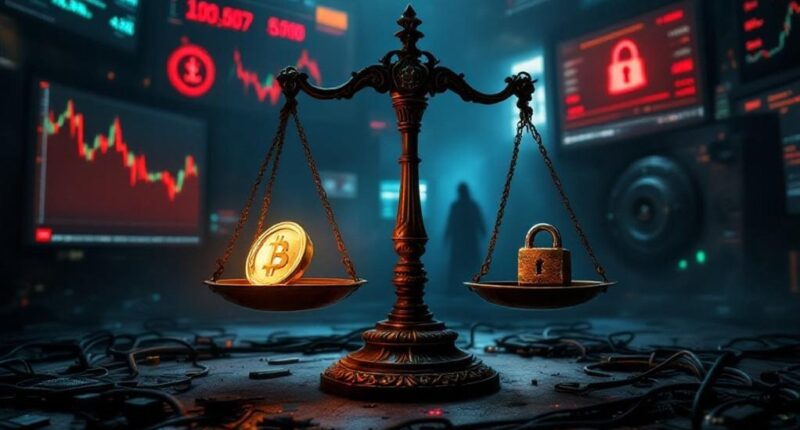The decentralized finance landscape faces a mounting security crisis as vulnerabilities continue to plague DAO ecosystems.
With $238 million stolen through DeFi exploits in May 2025 alone, the industry’s promise of trustless financial systems stands on increasingly shaky ground.
DeFi’s trustless promise crumbles as exploits drain hundreds of millions, leaving investor confidence in shambles.
These hacks exploit everything from smart contract bugs to basic mathematical errors—like flawed overflow checks that brought down Mobius and decimal miscalculations that compromised Cetus.
Lido’s recent breach demonstrates how DAOs can remain functional despite attacks due to their decentralized design that required 5-of-9 quorum for operations.
Think of DAOs as digital democracies where the voting booths might be rigged.
“Whale voting” lets crypto aristocrats—those holding massive token supplies—dictate decisions for everyone else.
It’s like showing up to a town hall only to discover three people control 90% of the votes.
This concentration of power undermines the very decentralization these platforms promise.
Social engineering adds another layer of risk.
Hackers aren’t just breaking in through code—they’re walking through the front door with stolen credentials.
In one notorious case, a malicious LND developer altered permissions and walked away with user funds.
It’s the digital equivalent of the bank guard emptying the vault during his shift.
Cybercriminals even targeted Coinbase through bribed remote workers who provided access to sensitive customer data that facilitated phishing attacks.
Infrastructure weaknesses create additional vulnerabilities.
Oracles—the data feeds DAOs rely on for decision-making—represent juicy targets for attackers.
Manipulating these information sources is like changing all the street signs in a city overnight; suddenly, nobody knows which way is up.
Network-level attacks further complicate governance.
“Gas griefing” and transaction spamming can effectively shut down voting periods or make participation prohibitively expensive.
The infamous DAO hack of 2016 resulted in $60 million stolen due to vulnerabilities in the underlying smart contracts that governed the organization.
Imagine trying to vote in an election where someone keeps moving the polling station or charging you $50 to cast your ballot.
While code audits and security reviews help, they’re not universally enforced.
Multi-signature designs and decentralized oracle architectures offer promising solutions, but their complexity introduces new challenges.
Until DAOs implement thorough security frameworks covering both technical and governance vulnerabilities, users should approach these platforms with informed caution rather than blind trust.






